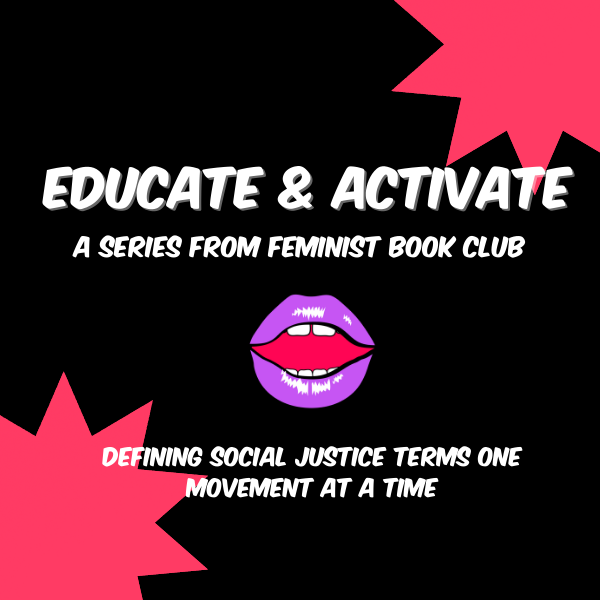Feminist Book Club blog contributors are working together to create posts as an “Educate & Activate” series. We will define a term or movement, provide historical context, and give you additional resources to learn more. We believe that an educated populace can be better activists, accomplices and co-conspirators. It is important to note that these are meant to be brief descriptions and not inclusive or exhaustive of all resources. We urge you to continue being curious, and continue learning more.
Definition
How many times have you said “XYZ is canceled”? Cancel culture or canceling someone is the act of collectively culturally boycotting, or publicly shaming an individual (usually a celebrity, but could also be less prominent folks) because they caused harm to individuals or groups of people. Some examples of infamous canceling include R. Kelly, Harvey Weinstien, and Bill Cosby. Cancel culture is frequently associated with perpetrators of sexual assault, but is used in other instances as well.
Another phenomenon that is associated with cancel culture is calling someone out, the act of drawing attention to the negative and harmful behavior of another person. Social media helps fuels this phenomenon.
First Usage
People began canceling others on a mass scale around 2017, around the time the #MeToo movement was gaining popularity. The earliest frequent circulation was among Black Twitter (thank you again Black Twitter).
What is the state of cancel culture today?
Cancel culture has been monumental in holding celebrities accountable and questioning the systems of privilege that benefit, protect, and aid those who perpetrate harm against others. However, there has been criticism lately on when cancel culture has gone too far. There are times when we need to remove individuals from their platform when it has been used to facilitate harm. But what about when our notions of good versus evil impede growth and community healing?
I know in our movements of liberation for all communities, we have become quick to adopt the “us versus them” mentality and write off those who do not agree with us. This groupthink makes it difficult to make progress and promote growth. This is not to say that we should cancel cancel culture, but we should be more mindful about how we choose to hold people who cause harm accountable in a way that demands growth, makes amends, and critiques the parts of our society that made this person choose to harm in the first place. Just canceling someone is not enough.
Resources to learn more
Definitions and first usage came from this article
This is a really thought-provoking YouTube video that critiques cancel culture
Inspiration for this post came from the book We Will Not Cancel Us: And Other Dreams of Transformative Justice by adrienne maree brown



Pingback: To Cancel or Not to Cancel? | Feminist Book Club